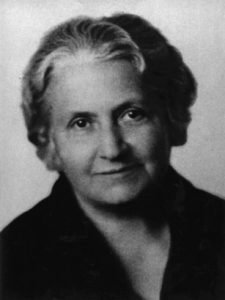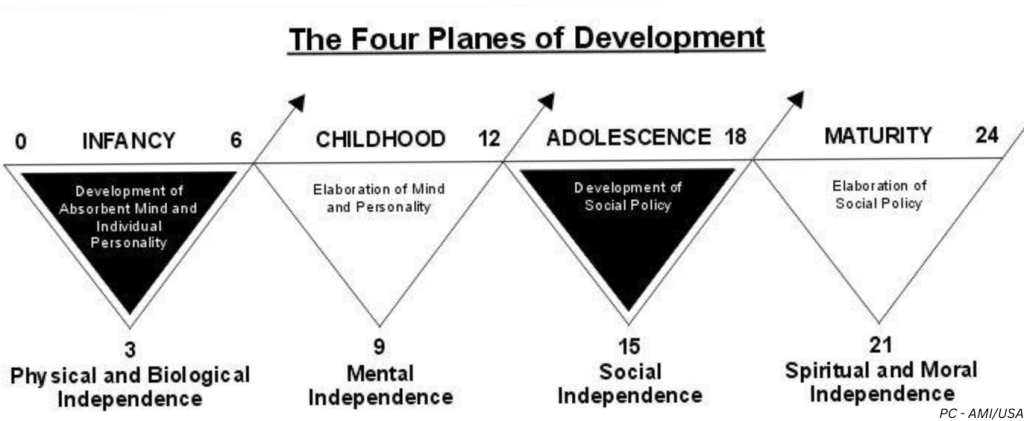 Dr. Maria Montessori
Dr. Maria MontessoriBorn in 1870 in Rome, Dr. Maria Montessori defied societal norms by becoming the first woman to enroll in medical college and earn a degree, overcoming numerous obstacles. Her groundbreaking insights emerged during her medical practice at the Psychiatric Clinic of the University of Rome. There, she discovered the untapped potential within seemingly hopeless children, recognizing that, with proper care, guidance, a prepared environment, trained adult, and scientific equipment, they could achieve a degree of normalcy. These children, initially labeled as idiots, demonstrated the ability to pass tests given to their normal peers. This experience made Dr. Montessori realize the significant gaps in traditional education that hindered reaching their full developmental potential.
Dr. Maria Montessori, deeply intrigued by human development, observed children in her era and viewed their growth holistically. She identified four distinct yet similar stages in a child’s physical and psychological development and emphasized the need for tailor made approach at each stage for holistic development. She termed these stages, The Four Planes of Development.
I have found that the child in his development passes through certain phases and I maintain that there should be planes of education to correspond with these.” (Dr. Maria Montessori, AMI Communication 2/3, 1969)

In this period, the child possesses a distinctive sensitivity that allows him to effortlessly absorb his environment and adapt to it. He is driven by his need for love, protection, coordinated movement, language acquisition, sensory exploration, attention to detail, and a sense of order to attain physical independence.
In this phase, the child develops a reasoning mind, exploring various topics through imagination, abstraction, and logic. Driven by his insatiable curiosity, he seeks to understand the ‘how,’ ‘when,’ and ‘where’ of everything. Recognizing the need for comprehensive development, a tailor-made environment is crafted, offering the child a glimpse into the vast universe—an imposing reality with answers to all his queries. Together, we walk life’s path, acknowledging the interconnectedness of all things in the universe, forming a unified whole. Through this approach, the child achieves mental and moral independence.
The third plane is a period of significant physical and psychological transformation, akin to the first plane. Seeking safety and understanding, he enters society, transitioning from perceiving the world through others’ lenses, to living and understanding the society for himself. To meet the needs and characteristics of this phase, Dr. Maria Montessori proposed an Erdkinder—a center for study and work, an environment tailored for adolescents.
The fourth development period spans from 18 to 24 years, signifying the transition from adolescences to adulthood. It involves taking on responsibilities, understanding one’s social mission, and gaining maturity through practical experiences. During this period, making life choices becomes crucial, leading to the attainment of intellectual and spiritual independence by understanding and engaging with society.